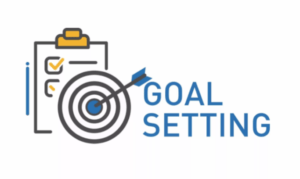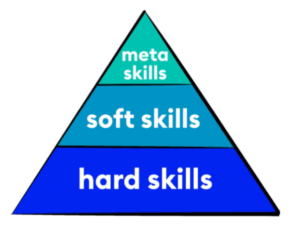The art of mastering SEO goes beyond simply understanding which strategies will lead to the desired outcomes.

Subscribe us to learn more about SEO!
It also involves developing meta-skills such as learning and goal-setting, which enable us to achieve our objectives.
The ability to set and accomplish goals is invaluable for SEO professionals , whether they are striving to increase revenue on a client’s website or managing their own site. Those who consistently execute their plans, either through their own efforts or by implementing effective systems, tend to achieve remarkable results.
Furthermore, consistency has become even more vital in the era of semantic search. Success in semantic SEO and topical authority relies heavily on websites that consistently produce high-quality content and secure quality links over time.
Consider how often you come up with a great idea, acquire a new skill, or embark on a new affiliate project, only to never see it through to completion. Alternatively, perhaps you start a new project with a burst of enthusiasm, only to find that excitement fading over time, ultimately leading to its abandonment. If you can relate to these experiences, you are not alone. Behavioral scientists refer to this phenomenon as the intention-action gap.
Fortunately, just like in learning research, there are practical techniques you can employ to develop better plans that you are more likely to follow through on. Recognizing the significance of this meta-skill, I have invested time in studying and testing various ideas related to goal-setting, and I want to share the most practical and beneficial takeaways I have discovered.
Rethinking Goal-Setting Frameworks
Setting goals is just the first step towards achieving them. It’s the systems and processes we establish that truly make a difference in whether we succeed or not. One effective approach to increase our chances of success is by using goal-setting frameworks.
Goal-setting frameworks are not simply about following a rigid set of rules or filling out a template mechanically. They go beyond that. Each letter in the acronym represents a fundamental principle identified by experts and researchers as effective in goal setting. These frameworks aim to capture the essence of these core concepts, allowing for adaptable application to different goal-setting scenarios. It’s about truly understanding the principles and applying them in a way that suits our specific circumstances, rather than just going through the motions of completing a template.
Many of us may have been introduced to the SMART goals approach during our educational years. However, the emphasis in those cases often leaned more towards completing worksheets rather than deeply grasping the fundamental principles that enhance goal setting. But when we truly grasp the core ideas and the bigger picture of turning ideas into real action, these insights become even more powerful.

Why is specificity important in goal setting?
Specificity is often overlooked but it plays a crucial role in achieving successful goal setting. As a programmer, I have experienced the challenges that come with vague requests for new features in software development. Even minor changes can lead to a complete overhaul. The lack of specificity not only burdens the developer but also makes it difficult to predict timelines.
You should remember the importance of pinpointing the exact issue we are addressing in our campaigns. Many campaigns fail not because of a lack of effort, but because objectives are not clearly defined. For example, optimizing a website for conversions requires specific goals such as increasing newsletter sign-ups, enhancing ecommerce sales, or encouraging more video views. Each goal requires different strategies, tools, and metrics for measuring success.
Without precise goal definition, it becomes challenging to assess progress and determine if a change in strategies is needed. This is especially true in the ever-changing world of SEO.
Here are a few reasons why achieving clarity through specificity is crucial:
- Reduced cognitive load: Vague problems require juggling multiple interpretations and potential solutions, placing a heavy cognitive load on our working memory. Specific problems allow for focused thinking, streamlining the cognitive process.
- Clear starting point: Ambiguous problems can hinder action because it is difficult to determine the initial step or subsequent course of action. Specificity provides a clear starting point, making it easier to take action.
- Avoiding cognitive tunneling: Ambiguity can cause our brains to fixate on less relevant aspects of a problem. By being specific, we can avoid cognitive tunneling and focus on what truly matters.
- Boosting motivation and reward: Our brain’s reward mechanisms thrive on clear objectives. When goals are precisely defined, the dopamine pathways responsible for motivation and reward function optimally, boosting motivation and increasing the likelihood of success.
The Importance of Specificity in SEO and Developing SEO Plans
Specificity is crucial for SEOs (Search Engine Optimizers) and the development of effective SEO plans. When working with clients, we often hear statements like “we just want more revenue.” However, this vague goal doesn’t provide a clear understanding of what drives revenue from digital marketing. As SEOs, it is our responsibility to figure out how to achieve the desired growth.
The wrong approach is to simply agree to “drive more revenue” without defining specific metrics and objectives. Instead, we should strive to be as specific as possible about the amount of growth that can be generated and, more importantly, determine the specific actions that need to be taken to achieve that growth. This level of specificity is crucial for success.
By lacking specificity in our goals, we encounter several challenges:
- Lack of Feedback: Without specific targets, we won’t have real-time feedback on whether our efforts are on track or off track. This makes it difficult to make informed decisions and adjust our strategies as needed.
- Inability to Make Audibles and Pivots: Without specific goals, we won’t be able to adjust our plans according to a predetermined set of parameters. For example, we won’t know how many content pieces or how much effort should be allocated to link building. Specific goals enable us to make audibles and pivots that align with our objectives.
- Focus on the Wrong Things: Without clarity on our goals, we might engage in tasks that seem good in theory but don’t contribute directly to achieving our objectives. For instance, we may spend time adding alt tags to images, when the real priority should be on executing tasks that can actually deliver tangible results.
Without these detailed targets, we find ourselves navigating without a compass. We are unable to accurately measure the effectiveness of our strategies and determine whether they are truly fruitful. This not only hinders our professional growth and expertise in SEO but also prevents us from refining our approaches based on past insights.
Being specific in our SEO goals and plans allows us to set realistic expectations, track progress, make data-driven decisions, and focus our efforts on actionable tasks that directly contribute to our objectives. It enables us to gauge success, learn from our experiences, and continuously improve our strategies for future projects.
Summarizing SMART goals
SMART goals have been a successful goal-setting framework for a long time, with specificity being a core principle that has been adopted by newer methodologies. However, recent advancements in behavioral science have introduced a new model called WOOP, which builds on the concepts of SMART and adds additional concepts. WOOP stands for wish, outcome, obstacle, and plan.
- Wish and outcome
Every SEO campaign has a wish and a desired outcome at its core. This could be achieving the top position for high-value keywords, increasing organic traffic by 10 times, or improving a brand’s online visibility. The key to a successful SEO strategy lies in choosing an ideal difficulty for the outcome. It is important to consider certain parameters when selecting a desired outcome to ensure motivation rather than demotivation. The “85% Rule” suggests that an optimal level of difficulty is achieved when there is a 15% failure rate, providing enough challenge for continuous learning and improvement without discouragement. In the world of SEO, it is crucial for the wish to be specific, such as aiming for a 20% increase in organic traffic from search engines within the next six months rather than simply wanting more traffic.
- Overcoming Obstacles and the Power of Planning.
Visualizing successful outcomes sometimes had a demotivating effect. On the other hand, pondering on the obstacles and challenges ahead led to motivational shifts and increased likelihood of success. This concept, which Oettingen refers to as “mental contrasting,” involves weighing the pros and cons and realistically planning for potential challenges.
For SEO professionals, this means that during goal-setting and strategy development, it is crucial to envision and account for potential obstacles. The key takeaway from mental contrasting is the value of realistic planning. Instead of solely relying on positive thinking, a more balanced approach that acknowledges both the good and the bad in a situation can be more effective in achieving goals. It’s about understanding and preparing for possible challenges rather than simply hoping for the best.
This philosophical shift towards seeing things as they are and planning accordingly can make reaching our goals more achievable. It allows us to be proactive, agile, and better equipped to navigate the obstacles that may arise along the way. By adopting this approach, we can increase our motivation, likelihood of success, and overall satisfaction with our achievements.
Additionally, a cornerstone of the WOOP framework, as discussed by Professor Peter Gollwitzer at NYU, is the component of “planning.” Gollwitzer’s research introduced the concept of “implementation intentions,” which involves creating short and precise statements that outline specific actions to be taken when faced with obstacles. The findings showed that formulating these implementation intentions offers several benefits.
- The Power of Planning: Implementation Intentions and the WOOP Framework
The findings of research demonstrated several compelling benefits of creating implementation intentions:
- Automaticity in Response: By crafting implementation intentions, the mind becomes primed to respond automatically when confronted with specific obstacles. It’s akin to setting up a mental reflex, where the predetermined course of action becomes ingrained and readily accessible.
- Increased Likelihood of Action: The simple act of formulating these statements significantly increases the likelihood that individuals will act on their intentions. In fact, people who created implementation intentions were found to be two to three times more likely to take action compared to those who didn’t engage in this exercise.
- Mental Preparation: Knowing in advance how to tackle a problem reduces hesitation and doubt when the problem actually arises. By having a clear plan of action already established, individuals can confidently navigate obstacles and readily apply effective solutions.
For SEO professionals, the implication is clear: during the process of developing strategies, it is highly beneficial to anticipate possible challenges and devise short, actionable plans to address each one.
Mastering the Art of SEO Goal-Setting: The Crucial Meta-Skill

One of the common challenges many individuals face when beginning a project is that their initial motivation is often at its peak. However, as time goes on, motivation tends to dwindle, and important projects may even get abandoned altogether.
One way to address this issue and maintain a steady momentum is through meticulous upfront planning. By taking the time to identify potential obstacles, set specific goals, and devise plans for handling each challenge, we establish a solid foundation for fostering realistic expectations about the outcome.
A fundamental concept supported by related research is the role of motivation in our expectancy of a successful outcome.
When we have confidence in our goal-setting process and see examples of others achieving success, it becomes easier to maintain motivation. Therefore, it is crucial for goal-setting to leverage past victories and learn from them to improve our confidence and motivation.
Goal-setting is a meta-skill that SEO professionals need to master. Whether setting targets for ourselves or for clients, whether they are long-term objectives or smaller daily micro-goals, having an effective goal-setting framework optimizes our chances of success. It enables us to align our actions with our desired outcomes, build confidence in our abilities, and stay motivated throughout our SEO journeSERPy.
By continuously honing our goal-setting skills, we can navigate the challenges of the ever-evolving SEO landscape, adapt to changes, and achieve meaningful results for ourselves and our clients. So, let’s embrace goal-setting as a crucial meta-skill and leverage effective frameworks to optimize our chances of success in the dynamic world of SEO.
Author
-

Alisha is the Editor-in-Chief of Search Engine Journal. Before that, she covered tech for News & Trends, content editing, and social strategy at AdClickAgency. Alisha holds a BA in English and Journalism from Mount Holyoke College and an MBA in Marketing from San Francisco State University. Her work has also appeared in Thrillist, the Boston Herald, and EcoSalon, and she's based in St. Petersburg, Florida.
View all posts







